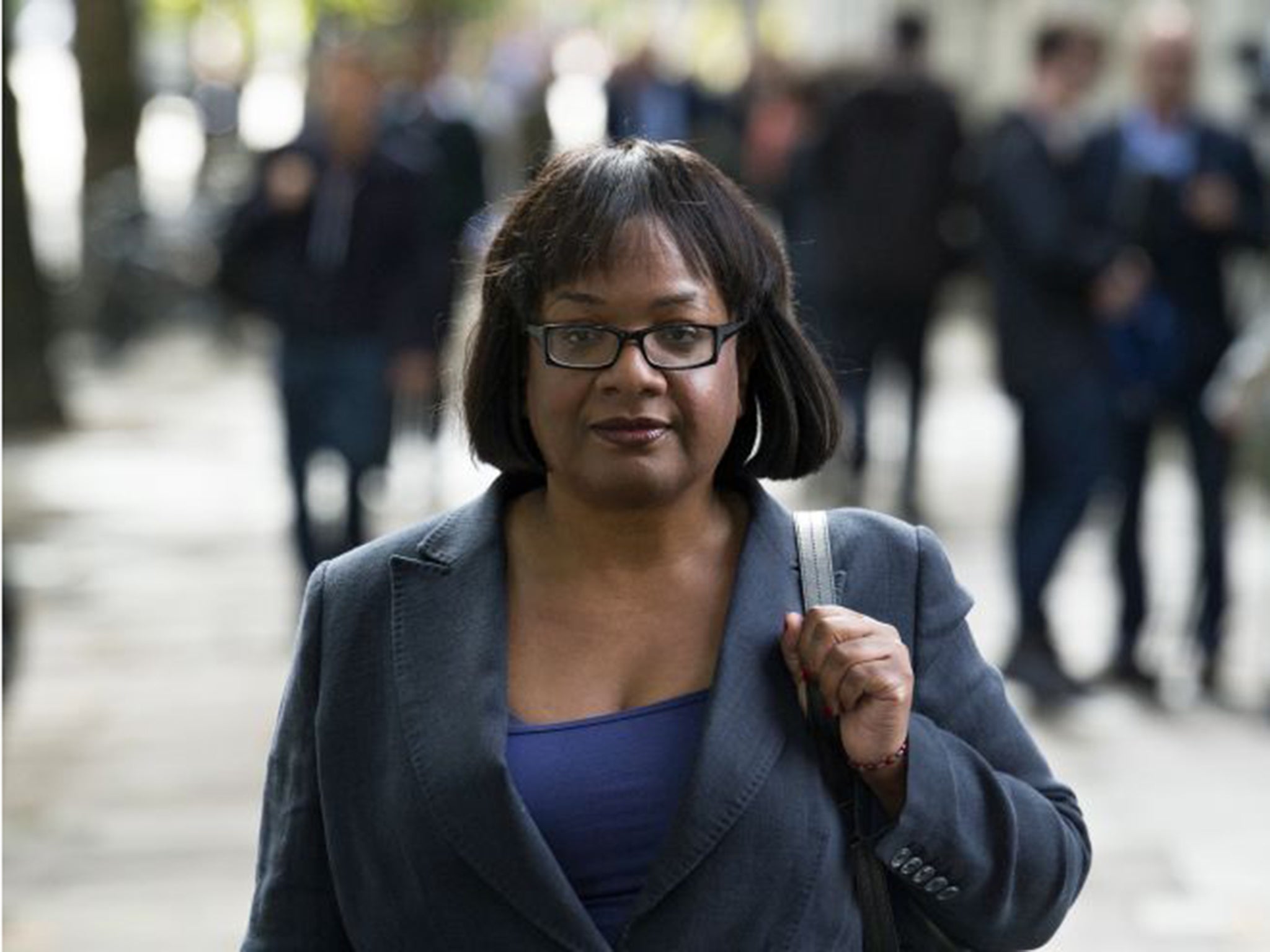Labour’s Diane Abbott has called for a major rethink on Theresa May’s snooping laws, which the European Court has indicated are unlawful.
Ms Abbott slammed the Conservative legislation as a "serious erosion of our rights and liberties" and called for new exemptions.
But she also risked opening divisions in her own party after telling how she tried to warn MPs about dangers before the law was passed, despite concessions having been won by her Labour predecessor Andy Burnham and Sir Keir Starmer, then in the shadow justice brief.
The European Court of Justice has now ruled that bulk email and call data retention by governments is unlawful, even though it was a watered-down version of Ms May's Investigatory Powers Act that reached the UK’s statute book last month.
Ms May first brought the legislation forward as Home Secretary, but a legal case against it was brought by Labour’s deputy leader Tom Watson and David Davis, who would later end up in Ms May’s Cabinet.
Writing for Politics Home, Ms Abbott said that “from time to time” intelligence powers are needed to gather data on terror suspects or criminals.
But she added: "The legislation that was struck down in the European Court went far wider than that. In fact, there was no provision limiting the gathering of data to terrorism or organised crime at all.
"Even the suspicion of the most minor offences was enough to trigger a data trawl by the most junior officials, and in all cases the target had no right to be informed that an investigation had begun, or even that it had taken place in the past with no evidence of wrongdoing found.
"This is a serious erosion of our rights and liberties."
The bulk of the legislative process was carried out while Mr Burnham was shadow Home Secretary and Sir Keir was in the shadow justice brief.
During the the summer both fought for concessions to Ms May’s earlier versions of the law, with Sir Keir claiming to have won a "really significant step forward".
But Ms Abbott said: “I became involved in this legislation almost at the end of its passage through Parliament as a new shadow Home Secretary.
"I tried to raise these points in the course of the final debates. I even suggested that the courts might strike down the provision of the Act as being sweeping and draconian."
She went on: "Ordinary people are the main victims of both terrorism and organised crime. We need to wage a relentless fight against both.
"But government legislation in this mistakes draconian powers for effective ones. I will be happy to work with government on a major legislative rethink."
Ms Abbott has also clashed with Mr Burnham and Sir Keir more recently over immigration, after giving an interview in which she signalled the economic consequences of stronger controls.
Meanwhile, Mr Burnham, Labour’s candidate to be mayor of Manchester, used an interview to say it was "time to confront a hard truth" and implied that immigration could be "undermining the cohesion of our communities and the safety of our streets".
Sir Keir backed tougher controls and said the UK’s future relationship with the EU needed to go "beyond" economic considerations.

Join our commenting forum
Join thought-provoking conversations, follow other Independent readers and see their replies
Comments